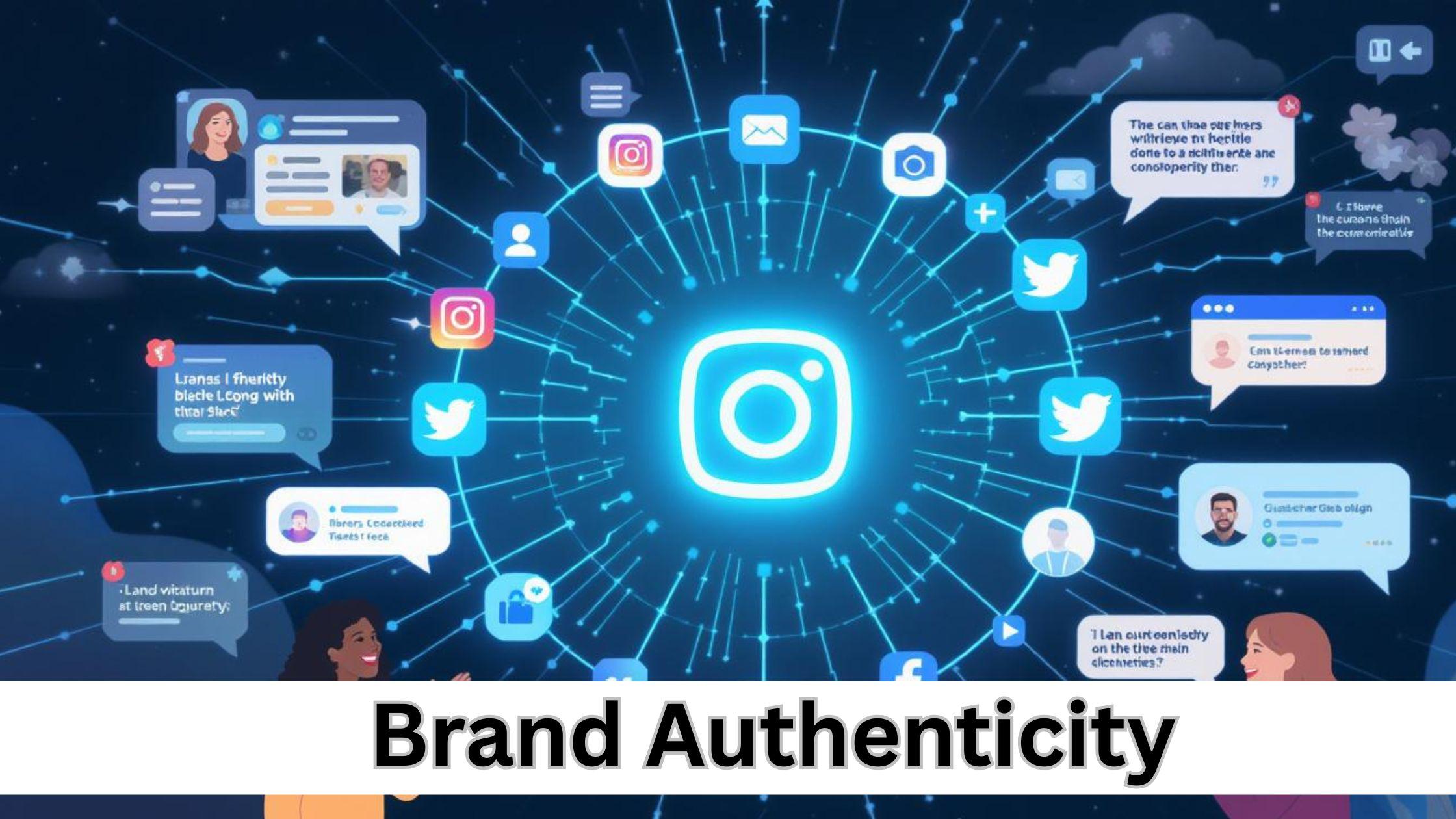Building Authentic Relationships in a Hyper-Connected World

In the contemporary business environment, companies operate in a Hyper-Connected World where every action, interaction, and message is visible to a global audience. Consumers today are highly informed and have instant access to opinions, reviews, and social commentary. In this environment, brand authenticity has emerged as a critical differentiator. Audiences expect brands to demonstrate transparency, integrity, and relatability. Brands that embrace authenticity build trust, foster loyalty, and create lasting relationships with their customers.
Understanding Brand Authenticity
Brand authenticity is the alignment of a company’s values, actions, and messaging. In a hyper-connected world, inconsistencies or misleading claims are quickly noticed and shared. Authentic brands communicate openly about their mission, challenges, and achievements, creating trust and emotional resonance. Embedding authenticity in all aspects of operations strengthens engagement and fosters long-term customer loyalty, giving brands a competitive advantage.
Social Media as a Channel for Authentic Engagement
Social media has transformed brand communication. Unlike traditional advertising, social platforms enable real-time interaction, feedback, and content sharing. Authentic brands leverage social media to share behind-the-scenes stories, employee experiences, and customer testimonials. Hyper-connected audiences value transparency and responsiveness, making social media an essential tool for demonstrating authenticity and building trust.
Consumer Expectations in a Connected World
Today’s consumers seek more than products—they want brands that reflect shared values, ethical behavior, and social responsibility. Research indicates that audiences are more likely to engage with companies that demonstrate authenticity. Purpose-driven initiatives, sustainability efforts, and ethical practices are now baseline expectations. Brands that meet these expectations build credibility, loyalty, and long-term engagement with their audience.
Storytelling to Communicate Authenticity
Storytelling is a powerful method for conveying authenticity. Authentic stories focus on real experiences, challenges, and achievements rather than exaggerated claims. Customer testimonials, employee journeys, and founder narratives provide emotional connection and credibility. In a saturated digital environment, compelling storytelling allows brands to stand out and build meaningful relationships with audiences.
Transparency in Operations
Transparency is essential for establishing brand authenticity. Consumers value brands that openly share insights into operations, sourcing, and corporate practices. Sharing details about ethical sourcing, sustainability initiatives, and internal policies builds trust and strengthens credibility. Hyper-connected audiences actively seek transparency, making it a key element of authentic engagement and stronger customer relationships.
Consistency Across All Touchpoints
Authenticity requires consistency across all brand interactions. From social media posts to email campaigns, websites, and customer service interactions, every touchpoint should reflect the brand’s core values. Inconsistencies can quickly erode trust, especially in a hyper-connected world where discrepancies are rapidly observed. Brands that maintain consistency reinforce authenticity and build long-term credibility.
Influencer and Advocate Collaborations
Authenticity is amplified through partnerships with influencers and brand advocates who genuinely align with a brand’s values. Collaborating with credible voices increases engagement, while employee and customer advocacy spreads authentic messaging through peer influence. In a hyper-connected world, authentic endorsements hold more weight than traditional advertising, making influencer and advocate strategies essential for brand success.
Responding to Criticism Authentically
Criticism is inevitable in a hyper-connected world where information spreads quickly. How a brand responds reflects its authenticity. Transparent, empathetic, and solution-focused responses can transform challenges into trust-building opportunities. Defensive or dismissive reactions harm credibility. Consumers value brands that acknowledge mistakes, act responsibly, and communicate openly, reinforcing loyalty and trust.
Measuring Authentic Engagement
Authenticity influences both perception and measurable outcomes. Metrics such as repeat purchases, social media engagement, referral growth, and customer satisfaction indicate how well authentic messaging resonates. Feedback and social listening tools provide insights into consumer sentiment, enabling brands to refine strategies. Measuring authenticity is crucial for sustaining engagement and growth in a hyper-connected world.
Case Studies of Authentic Brands
Several brands have successfully leveraged authenticity to enhance engagement and loyalty. Companies that share behind-the-scenes content, highlight sustainability initiatives, and operate transparently consistently outperform competitors in trust and influence. These case studies demonstrate that authenticity is a strategic advantage that delivers tangible results while strengthening audience connections.
Emerging Trends in Brand Authenticity
As technology evolves, opportunities for authentic engagement continue to expand. AI-driven personalization, immersive experiences, and real-time analytics allow brands to connect meaningfully with audiences. Despite technological advances, authenticity remains grounded in honesty, transparency, and human-centered communication. Brands that embrace these principles are better positioned to thrive in a hyper-connected world.
Integrating Authenticity into Brand Strategy
Successful brands embed authenticity into their strategy. This includes aligning operations, communications, product development, and customer interactions with core values. Authenticity should guide marketing campaigns, corporate responsibility initiatives, and internal culture. Integrating authenticity across all touchpoints strengthens trust, fosters loyalty, and differentiates brands in competitive markets.
Why Authentic Brands Thrive
Ultimately, brand authenticity is a key factor for success in a hyper-connected world. Transparent communication, consistent messaging, ethical practices, and compelling storytelling collectively build trust and loyalty. Companies that prioritize genuine engagement create deeper connections with audiences, driving sustained growth and competitive advantage. In an environment filled with choices and constant information, authenticity ensures a brand stands out and thrives.
Read Full Article : https://bizinfopro.com/blogs/marketing-blogs/why-brand-authenticity-wins-in-a-hyper-connected-world/
About Us : BizInfoPro is a modern business publication designed to inform, inspire, and empower decision-makers, entrepreneurs, and forward-thinking professionals. With a focus on practical insights and in‑depth analysis, it explores the evolving landscape of global business—covering emerging markets, industry innovations, strategic growth opportunities, and actionable content that supports smarter decision‑making.
- Art
- Causes
- Crafts
- Dance
- Drinks
- Film
- Fitness
- Food
- Juegos
- Gardening
- Health
- Home
- Literature
- Music
- Networking
- Other
- Party
- Religion
- Shopping
- Sports
- Theater
- Wellness



